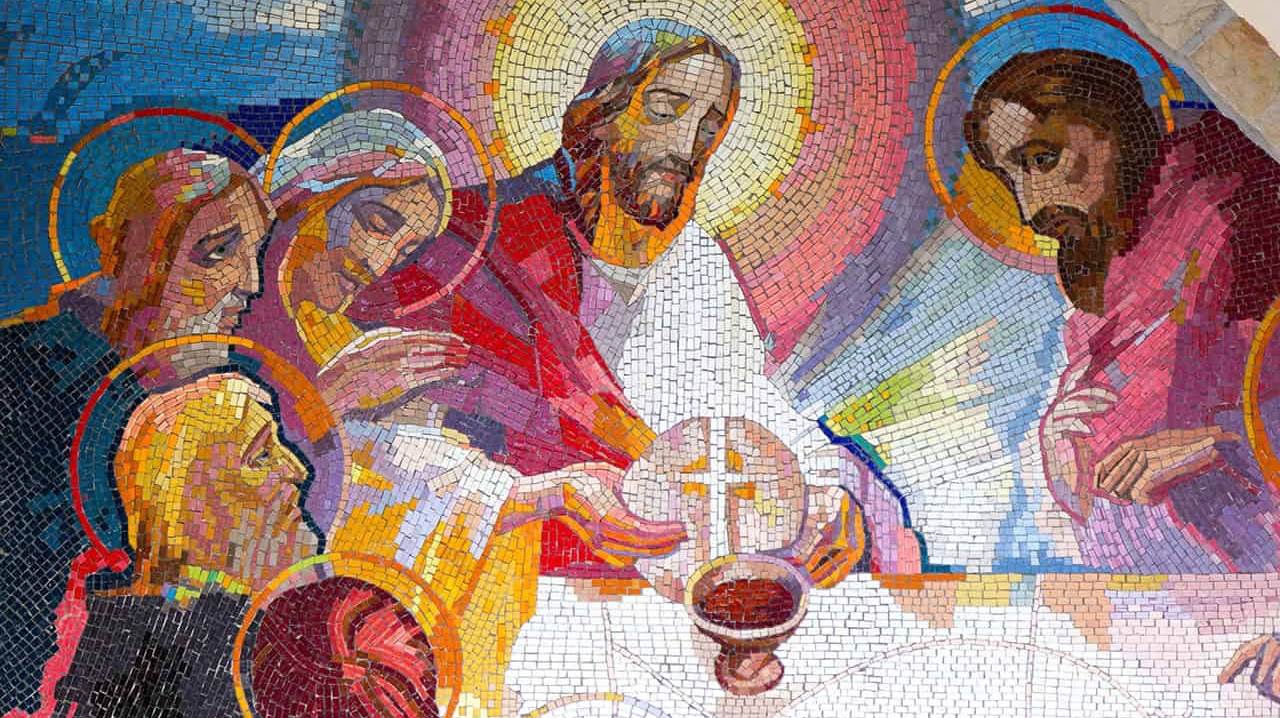Once there was a cab driver—we’ll call him Reggie—working the night shift; the dispatcher sent him to pick up someone from a small apartment building at 2:30 in the morning. When he arrived, the building was dark, except for a single light in a ground floor room. Many drivers would have honked once or twice, waited a minute, and then driven away, but Reggie realized a lot of people in the city relied on taxis as their only means of transportation, so he got out of his cab, walked to the door, and knocked. After a moment it was opened by a frail, elderly woman in her 80s. She asked him to carry her suitcase, which Reggie did; then he came and helped her to the cab. She gave him an address, and then asked, “Could you drive through downtown?” “It’s not the shortest way,” Reggie answered, but she said, “Oh, I don’t mind. I’m in no hurry; I’m on my way to the hospice.” Tears came to her eyes as she continued, “I haven’t any family, and the doctor says I don’t have very long to live.” Reggie quietly reached over and shut off the meter, then kindly asked, “What route would you like to take?”
For the next few hours, they drove through the city. The woman pointed out the building where she once worked as an elevator operator, and they drove through the neighborhood where she and her husband lived as newly-weds, and she pointed out a building—now used as a furniture warehouse—which had been a ballroom where she’d go dancing as a girl. Sometimes she asked Reggie to slow down in front of a particular building or street corner, and she’d stare into the darkness, saying nothing. At the first hint of sunrise, the woman said, “I’m tired. Let’s go now.” When they arrived at the hospice, two orderlies came out to the cab with a wheelchair, and Reggie got her suitcase out of the trunk. When the woman reached for her purse and asked, “How much do I owe you?,” Reggie surprised her by saying, “Nothing.” She started to protest, but he said, “There’ll be other passengers,” and then he bent down to hug her. She held him tightly, and said, “You gave an old woman a little moment of joy. Thank you.” The orderlies took her inside while Reggie walked to his cab; he heard the front door of the building shut—the sound of the closing of a life.
As Reggie said, “I didn’t pick up any more passengers that shift. I drove aimlessly, lost in thought. For the rest of that day, I could hardly talk. What if that woman had gotten an angry driver or one who was impatient to end his shift? What if I had refused to take the run, or had honked once, then driven away? On a quick review, I don’t think that I have done anything more important in my [entire] life. We’re conditioned to think that our lives revolve around the great moments. But truly great moments often catch us unaware, beautifully wrapped in what others may consider a small one” (Bausch, Once Upon A Gospel, pp. 89ff). Reggie’s life was changed as a result of that chance encounter. He was a good man beforehand; he became even more sensitive and aware afterwards. Jesus calls us to repent of our sins and to bear good fruit. Sometimes this involves a radical change of life, but often we’re invited to do this in the routine, everyday encounters. God’s grace is all around us, and we will be judged on how we respond to it.
Many times we try to make sense of life’s tragedies by equating human suffering with punishment for sin; that was the assumption of the people in the Gospel of Luke (13:1-9) who spoke of the Galileans executed by Pontius Pilate. Sometimes it does work this way; St. Paul (1 Corinthians 10:1-6, 10-12) reminds us that many of the Israelites gravely displeased God while journeying through the desert, and so were struck down in punishment, instead of entering into the promised land. Nevertheless, God’s first, and greater, impulse is always to be merciful and compassionate. That’s why He heard the anguished cries of His people during their slavery in Egypt, and chose Moses (Exodus 3:1-8, 13-15) to lead them into freedom; that’s why He sent His Son into the world to save us from our sins. However, as Jesus warns us in the Gospel, God’s amazing mercy demands our heartfelt response; each one of us has an inescapable duty of repenting of our sins and of growing in divine grace—and, like the fig tree in the orchard, we will sooner or later be held accountable for our choices.
The Lord has ordered everything for our salvation and eternal happiness, but He respects our free will. It’s up to us to choose to be truly sorry for our sins, to grow in God’s grace, and to be formed into Christ’s image and likeness, becoming a little more like Him each day. Jesus reminds us in the Gospel that we don’t know when we’ll die, how many chances we’ll have to repent, or how many opportunities we’ll be given to grow in holiness. Therefore, each day is a test, and also a great blessing—one we must use well. We might like to imagine ourselves heroically dying for another person, or making a noble sacrifice that wins us great admiration and respect, both on earth and in Heaven. Something like that could occur—but it’s far more likely that, as Reggie discovered, our great opportunities come to us disguised as routine moments and events.
Being ready for these moments means three things in particular. First of all, we need to pray or read the Bible every day—for only by regularly giving God’s grace this sort of room to work within us can we hope to be aware of what He’s doing in our lives. We can’t expect to see everyday miracles unless we’re predisposed to look for them. Secondly, we need to come to Mass and receive the Eucharist every weekend—for this is not only part of the worship we owe God, but also the deepest way of being united to Jesus, and thus sanctifying our entire week. Thirdly, we must consider the needs and feelings of others—for as Reggie’s story shows, what seems minor or unimportant to us may have great significance to someone else, and our efforts to be sensitive and compassionate in this way will quite often result in real spiritual blessings and growth. If we’re living in serious sin, or if our faith is shallow, Jesus wants to shake us up so we’ll repent while there’s still time. If, however, we’re sincerely trying to follow Him, He wants us to be at peace—not in a passive or complacent way, but in a trusting manner that inspires us to make still greater efforts to grow in holiness and come closer to Him. Most of the time this process occurs when we’re least expecting it—and only if love is truly the foundation of our lives can we be sure our opportunities won’t be wasted.





























